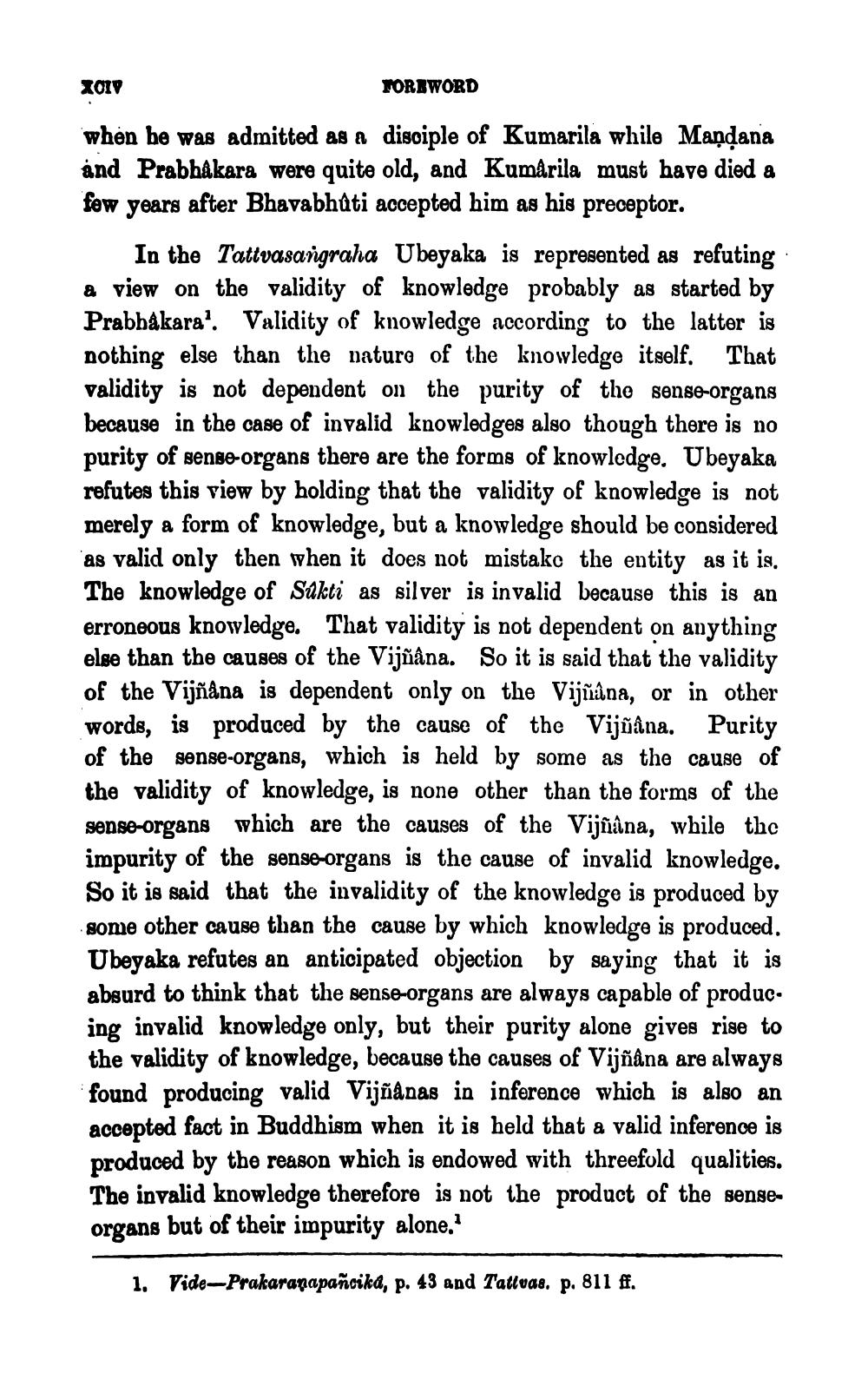________________
χσιν
PORSWORD
when he was admitted as a disciple of Kumarila while Mandana and Prabhakara were quite old, and Kumarila must have died a few years after Bhavabhūti accepted him as his preceptor.
In the Tattvasangraha Ubeyaka is represented as refuting a view on the validity of knowledge probably as started by Prabhakara'. Validity of knowledge according to the latter is nothing else than the nature of the knowledge itself. That validity is not dependent on the purity of the sense organs because in the case of invalid knowledges also though there is no purity of sense-organs there are the forms of knowledge. Ubeyaka refutes this view by holding that the validity of knowledge is not merely a form of knowledge, but a knowledge should be considered as valid only then when it does not mistake the entity as it is. The knowledge of Sakti as silver is invalid because this is an erroneous knowledge. That validity is not dependent on anything else than the causes of the Vijñâna. So it is said that the validity of the Vijñana is dependent only on the Vijīâna, or in other words, is produced by the cause of the Vijñâna. Purity of the sense-organs, which is held by some as the cause of the validity of knowledge, is none other than the forms of the sense-organs which are the causes of the Vijñâna, while the impurity of the sense organs is the cause of invalid knowledge. So it is said that the invalidity of the knowledge is produced by some other cause than the cause by which knowledge is produced. Ubeyaka refutes an anticipated objection by saying that it is absurd to think that the sense-organs are always capable of produc. ing invalid knowledge only, but their purity alone gives rise to the validity of knowledge, because the causes of Vijñana are always found producing valid Vijñānas in inference which is also an accepted fact in Buddhism when it is held that a valid inference is produced by the reason which is endowed with threefold qualities. The invalid knowledge therefore is not the product of the senseorgans but of their impurity alone."
1. Vide-Prakararapañcikd, p. 43 and Tattvas. p. 811 ff.




